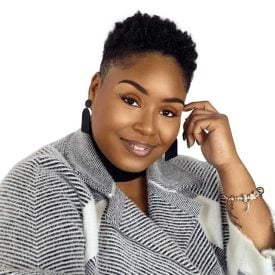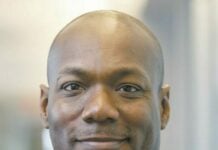As a DEI practitioner, I often remind people that we are not here for a long time, but a good time.
I use that statement to remind people that you can either help us make a fair and just society, you can change your problematic behavior whenever DEI is mentioned or a good training is employed, or you can simply get out of our way. No matter the choice you make, this work will get done. DEI is not a new phenomenon or mindless framework that appeared in 2020 after the murder of George Floyd and the continued killing of unarmed Black people.
The sector of DEI is more than a buzzword, it is the intention and act to make change in the world for those who have been stripped of the opportunity to do so based on where they live, income, and identities. DEI advocates, practitioners and supporters aim to create a fair and just society, to think beyond self, to create safe communities and strong villages with access to quality education, law enforcement, government, health care, grocery stores, agriculture, farming, environmental, roads, transportation, religious spaces, housing, etc.
This is the historical and current work of leaders known and locally known, to make a difference and equitable opportunities. In my work as a DEI consultant, I remind people that I am not here to change beliefs, but I am here to change behaviors and how you engage with people.
During a training I was facilitating for a university and six of their departments, a person took the statement “I am here to change your behaviors” to heart and walked out of the room 20 minutes into the 60-minute training. However, when the individual left the room, I had no idea of the reason. The moment was similar to someone excusing themselves from a room. It was not until the following day that I learned the person not only left the room, but they quit their job.
Initially, I was shocked, replaying the session in my head to better understand what was said at that moment for someone to resign their position. After some discussion I learned that the individual stated the comments about the root of racism and the impacts it still has in all sectors of society, including spaces in colleges, did not align with their morals and they did not feel safe, in short.
Basically, hearing hard truths and realities that are not similar to their experiences was uncomfortable and they no longer wanted to engage.
The issue with this behavior is that this person is operating in privilege. Here’s how: the department they work for identified a need for all employees to attend a required training on DEI due to data that highlights employee and student experiences. Leadership recognized the need and identified a DEI consultant based on recommendations and spent over a month discussing the topics this group needed to improve. The training information, including the topics, speaker information and purpose, was emailed in advance to all attendees.
Over 100 colleagues attend the training and only one person walks out and quits their job because they do not like how the discussion made them feel. Instead of taking the time to see there are issues to be addressed that would make the workplace a more welcoming place of intention, they took the opportunity to walk away from the organization and the discussion and learned nothing.
The lack of staying now employs them to continue this behavior at another organization potentially creating further disconnection and harm with communities outside of their circle of influence, experiences and identities. This behavior also allows them to ignore the realities of those around them when it becomes unimportant to them.
Being able to walk away from or disengage with experiences when you do not want to without harm or fear is a privilege. Period.
There are individuals who are unable to leave their job because they have bills to pay, possibly a family to support, needs, wants and a host of other responsibilities. They are unable to leave when they experience racism, the impacts of the gender wage gap, lack of accommodations, microaggressions, bias, harm or other things that create a hostile environment. They do not have the ability to freely leave their homes and neighborhoods when things are uncomfortable. Most must choose to stay in these environments and others must strategically maneuver these situations until they have secured support to leave, which may take months or even years.
But after much thought, I had to return to the mission of the work — to make change using histories and accountability.
Although I grew up hearing “it only takes one apple to spoil the bunch,” I found the silver lining in this situation because the bad apple walked right out of the bunch. The remaining 119 participants were engaged, asked questions, shared perspectives, wanted to continue connecting and actually stayed the entire 60 minutes.
With this shift in perspective, I was thankful for their departure. They did not stay and heckle me. They did not disrupt the discussion. They recognized doing uncomfortable work was not something they could handle. This moment reminded me, either you do this work — DEI — or you get out of the way.
A round of applause for getting out of the way, but now who will hold you accountable for choosing to ignore the needed work? I returned back to this question after thinking I had made peace and sense with it in my head.
A few more refined thoughts ran through my mind:
- You get to disengage with the truth and harmful histories of our institutions because it doesn’t feel good, while others are harmed and silenced by these historical measures?
- How deeply rooted are your beliefs that hearing an opposing viewpoint leads to shutting down and opting out of necessary training and discussion?
- What harm have and will you create with others outside of your own circle of influence because you are unwilling to see where you can leverage your privilege without diminishing yourself and others?
- You left your good insurance and benefits?!
But then, peace returned.
I accepted that not everyone will do the work. To think the entire world will see the value and purpose of DEI is unrealistic. If it were that simple the need for the work would not exist. Some will refuse, challenge, and dismiss the ways in which you are challenging a system they are used to, benefit from, created and or inherited.
No one is eager to change a system that works for them. We often hear “if it ain’t broke, don’t fix it’. That mindset spreads far beyond a crooked kitchen table or fixing an uneven painting. It seeps into the environments people have to occupy (i.e., hospitals, courtrooms, classrooms, neighborhoods, etc.).
It regulates the decisions of individuals who create programs, practices, and polices. It becomes the mantra of the systems further creating divide by restricting resources to one group vs. another. It’s the reason one zip code difference is the choice between life or death. It’s how this individual chooses self instead of learning how to be a better fellow human that values difference with respect.
This training was to deeply expose the issues with dismissive thought processes and the impacts it has on certain human lives vs. others. Although I did not change the behavior of 1 person that day, it did get them out of the way of potentially 119 other individuals whose behaviors may change as our discussion prompted them to be reflective of their beliefs.
DEI is not here to harm anyone, unlike the misinformation being disseminated states, it aims to honor the histories of those who have been excluded, to reimagine justice and move beyond lip-service into action.
Some of the challenges DEI continues to solve has been ongoing for decades due to systems being unwilling to change and the overturning of legal protections for targeted populations. Yet, people in DEI continue to fight knowing we have had some improvements and victories. We are starting to close the gap of having “the first [insert historically silenced identity] to be…” type of announcements, seeing individuals hold roles they were historically prevented from holding, and increased numbers of black and brown students attending college and graduating for example.
We continue to do the work which includes creating non-hostile environments for the same identities who are breaking barriers. Although I lost one person in the midst of my mission that day, I was glad to know they self-selected to leave the organization rather than stay and interfere with the department’s aim toward progression.
They did not decide to help us (intentionally, but in a way they did), they did not decide to change, but they did decide to get out of our way and engage with the people who wanted to see change.
Take care, friends!
Your #DEIHomegirl





Hey very interesting blog!
Admiring the hard work you put into your blog and in depth information you provide.
It’s good to come across a blog every once in a while that isn’t the same out of date rehashed information. Fantastic read!
I’ve saved your site and I’m adding your RSS feeds to my Google account.
Wߋnderful post! We are linking to this particularly great
post on our website. Keep up the great writing.
Comments are closed.